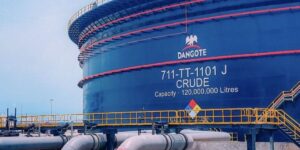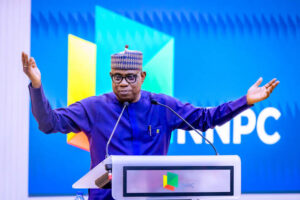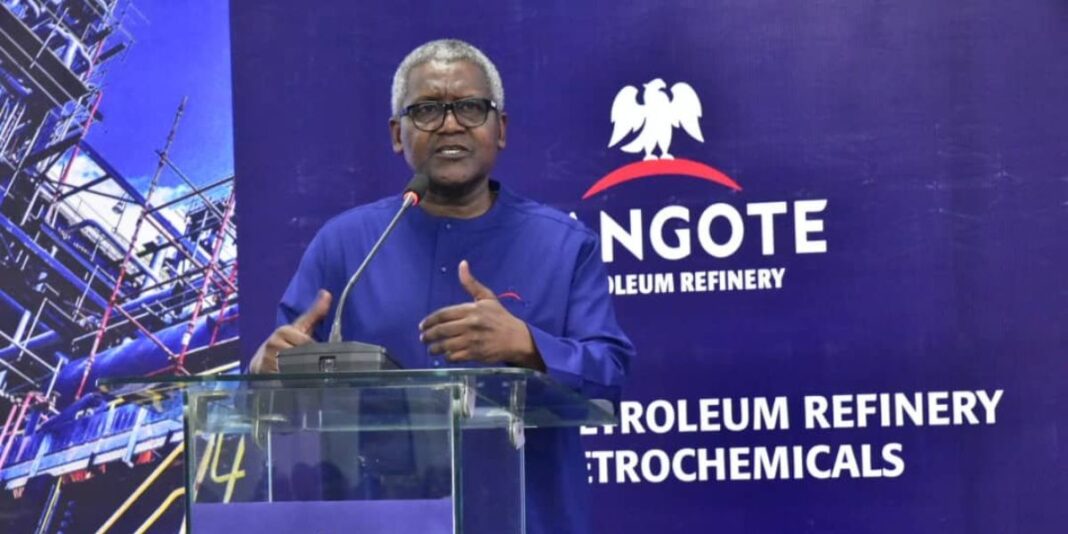Africa’s richest man, Aliko Dangote, has called on President Bola Tinubu to expand the scope of the federal government’s Nigeria First policy to include refined petroleum products. He urged a ban on fuel imports to protect local investments, particularly his $20 billion Dangote Refinery.

Speaking at the Global Commodity Insights Conference on West African Refined Fuel Markets—organised by the Nigerian Midstream and Downstream Petroleum Regulatory Authority (NMDPRA) in collaboration with S\&P Global Insights—Dangote said the influx of cheap, substandard, and often subsidised imported fuels was threatening the viability of domestic refineries.

“The Nigeria First policy announced by President Bola Tinubu should apply to the petroleum product sector and all other sectors,” Dangote stated, insisting that the same priority given to local goods and services in government procurement should extend to refined fuels such as petrol and diesel.
Concerns Over Cheap Russian Imports
Dangote noted that imported petroleum products, particularly those from Russia, are priced below market value due to international price caps and subsidies. These underpriced imports, he argued, create unfair competition.
“Discounted Russian petroleum products are flooding African markets, undercutting local producers. In Nigeria, we are dealing with product prices as low as 60 cents per litre—cheaper than in oil-producing nations like Saudi Arabia. That’s dumping,” he said.
He called for policy reforms similar to those in the United States, Canada, and the European Union to shield domestic producers from such external pressures.
Addressing Monopoly Concerns
Responding to critics who accuse him of seeking to dominate the sector, Dangote dismissed monopoly claims, saying his advocacy is about protecting national interests and encouraging domestic investment.
“Too many Nigerians with the means to invest are taking their money abroad and criticising those who build at home,” he said.
To reinforce his argument, Dangote revealed that his refinery had already turned Nigeria into a net exporter of petroleum products. Between June and July 2025 alone, it exported approximately 1 million tonnes—or about 1.35 billion litres—of petrol globally.

Marketers Oppose Import Ban
However, independent marketers are pushing back on Dangote’s proposal. The Independent Petroleum Marketers Association of Nigeria (IPMAN) and the Petroleum Products Retail Outlet Owners Association of Nigeria (PETROAN) have both warned against banning fuel imports.
IPMAN’s National Publicity Secretary, Chinedu Ukadike, said such a ban would hurt competition and lead to inflation.
“We independent marketers do not support a ban on fuel imports. Dangote’s refinery is not yet able to meet national demand. Banning imports would create monopoly and destabilise the sector,” Ukadike argued.

He also rejected Dangote’s assertion that imports weaken local industries.
“Importation promotes competition and drives refineries to improve. It won’t kill businesses; it will make them more efficient,” he said.

PETROAN President, Billy Gillis-Harry, also dismissed the idea, stating that no single company should control the entire downstream sector in a liberalised economy.
“We need diverse sources of energy. Importation helps stabilise supply. While local production should be encouraged, banning refined fuel imports is not the way forward,” he added.

Calls for Regulatory Reforms
Despite the opposition, Dangote reiterated his call for deeper reforms in the sector. He urged the federal government to revoke dormant refinery licenses—a suggestion that received support from IPMAN.
“Refinery licenses should not be held for speculative purposes. They must be tied to functional production,” Ukadike agreed.

Nationwide Fuel Delivery Set to Begin
Meanwhile, Dangote Refinery is preparing to roll out a nationwide fuel distribution system starting August 1. The company will deploy 4,000 compressed natural gas (CNG)-powered trucks to supply petrol, diesel, and aviation fuel directly to filling stations and major consumers, including telecom operators.
In a recent move to concentrate on his refinery, petrochemical, and fertiliser businesses, Dangote stepped down as Chairman of Dangote Cement’s Board of Directors.





